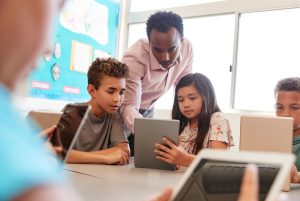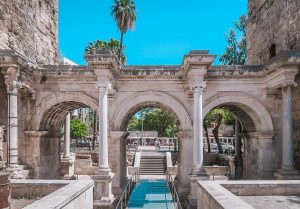
Intercultural Competence in the Classroom
Course Description
This course aims to equip educators with the skills to develop intercultural competence in the classroom and support students from diverse cultural backgrounds. Aligned with the Inclusion priorities of the 2021-2027 Erasmus+ Programme, the course teaches how cultural differences can be used as a resource to enrich the classroom environment. Based on UNESCO’s reports on diversity in education, participants will learn how to promote intercultural communication, increase cultural awareness, and create inclusive learning environments.
Participants will gain knowledge of key concepts such as cultural awareness, inclusive education, and multiculturalism while learning to foster intercultural dialogue in their classrooms. The course also focuses on utilizing digital tools to create an interactive and collaborative classroom environment.
Course Methodology
The course employs an activity-based, hands-on, and collaborative methodology. Theoretical parts will be limited (maximum of 1 hour per day) and most of the course will involve participants actively engaging in various workshops, group projects, and interactive activities.
Participants will develop practical strategies to support students from different cultural backgrounds using digital tools. Tools such as Padlet, Google Classroom, and Kahoot will be used to design activities that promote intercultural dialogue in the classroom.
Course Objectives
- Teach educators intercultural competence strategies that can be applied in the classroom.
- Create inclusive learning environments that embrace multiculturalism.
- Use digital tools to enhance intercultural awareness and collaboration.
- Improve educators’ ability to communicate effectively with students from different cultural backgrounds.
Learning Outcomes
- Participants will be able to apply intercultural competence strategies in their classrooms.
- Participants will create inclusive and multicultural learning environments.
- Participants will use digital tools to design lessons that support intercultural learning and interaction.
- Participants will develop activities that foster collaboration and cultural awareness in the classroom.
Tentative Daily Programme
Day 1: Introduction to Intercultural Competence
- Icebreaker Activity: “Cultural Mosaic” – Participants will share their cultural experiences to start the course.
- What is Intercultural Competence? – Definition and contributions of intercultural competence to education. Source: UNESCO Cultural Diversity Report (2020).
- Group Work: Participants will discuss strategies to promote cultural awareness and inclusivity in the classroom.
- Workshop: Educators will develop activities to increase interaction with students from different cultural backgrounds.
Day 2: Digital Tools and Intercultural Education
- Warm-up Activity: “Quick Discussion: Cultural Experiences” – Participants will discuss cultural differences they have experienced in their classrooms.
- Using Digital Tools for Intercultural Learning – How to increase intercultural interaction using digital tools such as Padlet and Google Classroom. Source: Erasmus+ Guide for Inclusive Digital Tools.
- Group Work and Presentations: Educators will create and present lesson plans with digital tools to support intercultural dialogue.
Day 3: Cultural Awareness in Inclusive Education
- Warm-up Activity: “Cultural Mapping” – Participants will map the cultural diversity in their classrooms to raise awareness.
- Cultural Awareness in Inclusive Education – What is inclusive education, and how can cultural awareness be increased in classrooms?
- Workshop: Educators will develop lesson plans for multicultural classrooms.
- Group Presentations and Feedback
Day 4: Integrating Intercultural Competence into Classroom Culture
- The Role of Intercultural Competence in Classroom Culture – How can intercultural competence be integrated into classroom and school culture?
- Discussion on Case Studies – Successful intercultural education programs and practices.
- Group Project Development: Participants will develop and present projects that integrate intercultural competence into their classrooms.
Day 5: Course Evaluation, Certification, and Course Cake
- Course Evaluation – Participants will reflect on what they have learned and discuss future collaborations.
- Future Intercultural Collaborations – Participants will explore opportunities for future collaborations on intercultural projects.
- Certification Ceremony and Course Cake Cutting
- Cultural Excursion Support
At the End of the Course
- Participants will receive their certificates.
- Participants will provide a general evaluation of the course and complete the event survey.
- Participants will receive course materials, videos, photos, and PDF documents in both digital and print formats.
Follow-up and Support
After the course, participants will be provided with digital and printed materials. An email group will be created to facilitate ongoing collaboration and the sharing of ideas related to intercultural education.
*Please note that course activities and content may vary depending on participants’ preferences and the instructor leading the session. Any changes to the course are at the discretion of the instructor. If there is a specific topic you would like to include in the course content, please let us know in advance.
Course Info
- Duration: 5 Days
- Location: All Location
- Cost: € 80-Day
- Certificate: Yes
- Prerequisites: No













